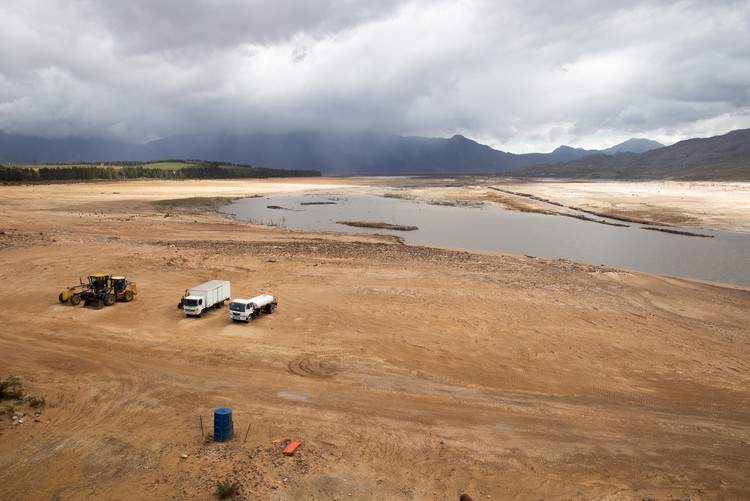Cape Town’s dam levels higher than this time last year
Big Six at 24% compared to 19.8% in the same week in 2017

In the last couple of weeks the amount of water in the dams supplying Cape Town has overtaken the 2017 levels.
The City of Cape Town’s Water Dashboard shows that as of 28 May the dam levels are at 24% versus 19.8% in the same week in 2017. Also, the dam levels rose nearly three percentage points from last week’s 21.1%. This is a consequence of the recent rain and Capetonians using much less water. Last week the city used a mere 505 million litres of water per day. Compare this to last year, when on 29 May the City said, “Disappointingly, consumption remains at 666 million litres [daily], which is above the consumption target of 600 million litres.”
The dam levels on 28 May 2018 versus the same week in 2017 are:
- Berg River: 43.3% vs 31%
- Steenbras Lower: 33.7% vs 23.8%
- Steenbras Upper: 60% vs 56.7%
- Theewaterskloof: 14.9% vs 13.8%
- Voëlvlei: 16.9% vs 14.6%
- Wemmershoek: 50.6% vs 36.1%
It is of course vital that Capetonians continue to use water frugally so that the dams can fill up and the risk of Day Zero can be avoided for at least a couple of years.
Support independent journalism
Donate using Payfast

Don't miss out on the latest news
We respect your privacy, and promise we won't spam you.
Next: Activists demand social housing on sports field in Green Point
Previous: Mixed reaction to R42 million taxi rank for Dunoon
Letters
Dear Editor
So, as a poor little scientist, my mind is boggling slightly. If the dam levels were lower last year this time and the usage levels were higher, why wasn't there all the panic before last year?
Surely we should have had some action in 2016 already? Or is it that the Israeli options for desalination were still being finalised? Methinks that there is something sinister going on here... or has already been proven?
© 2018 GroundUp.
This article is licensed under a Creative Commons Attribution-NoDerivatives 4.0 International License.
You may republish this article, so long as you credit the authors and GroundUp, and do not change the text. Please include a link back to the original article.
